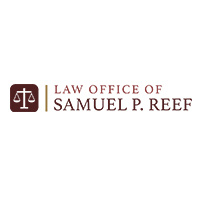Sharon DUI-DWI Lawyer, Massachusetts
Sponsored Law Firm
-
 x
x

Click For More Info:
-
Adam P. Beck, M.D., Esq.
25 Marston St Suite 303 Lawrence, MA 01841» view mapAccident & Injury Law Legal Expertise You Can Rely On
By working with lawyers who are also doctors, clients can benefit from advocates who have a deeper understanding of their physical injuries, medical needs, and prognoses.
800-383-8491
Samuel P. Reef
✓ VERIFIEDCar Accident, Bankruptcy, Divorce, DUI-DWI
Samuel Reef is a practicing lawyer in the state of Massachusetts. He received his J.D. from Suffolk University Law School in 1994. He currently works ... (more)
FREE CONSULTATION
CONTACTPhilip L. Arnel
DUI-DWI, Criminal, Insurance, Personal Injury, Accident & Injury
Status: In Good Standing Licensed: 30 Years
Jonathan C. Rutley
Traffic, Divorce & Family Law, DUI-DWI, Accident & Injury
Status: In Good Standing Licensed: 32 Years
Edward Molari
Domestic Violence & Neglect, Divorce & Family Law, DUI-DWI, Criminal
Status: In Good Standing
 Adam Beck Lawrence, MA
Adam Beck Lawrence, MA AboutAdam P. Beck, M.D., Esq.
AboutAdam P. Beck, M.D., Esq. Practice AreasExpertise
Practice AreasExpertise

